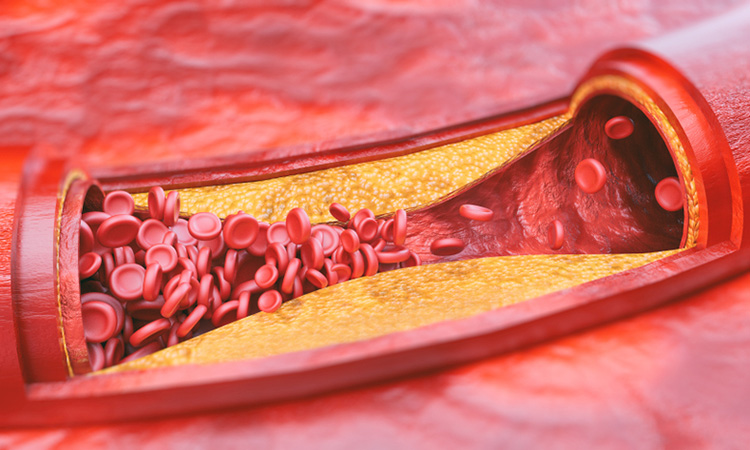Synthetic peptides block atherosclerosis in pre-clinical studies
Posted: 15 February 2021 | Victoria Rees (Drug Target Review) | No comments yet
Researchers have synthesised peptides that function like a soluble chemokine receptor, blocking atherosclerosis in animal models.


Researchers have designed and chemically synthesised short chains of amino acids – peptides – that function like a minimised soluble chemokine receptor. In animal models, the team from the Technical University of Munich (TUM), Germany, found that these peptides can block atherosclerosis.
According to the researchers, atherosclerosis is a chronic inflammatory condition of the arterial blood vessel wall. Soluble mediators such as cytokines and chemokines are pivotal players in this disease, promoting vascular inflammation. However, the development of anti-inflammatory therapeutics directed against such mediators that could prevent atherosclerosis has proven difficult, despite promising clinical studies in the recent past.
The peptides designed and synthesised by the researchers mimic certain chemokine receptors and are able to specifically inhibit chemokine mechanisms that promote atherosclerosis, whereas chemokine mechanisms that control important physiological processes in the body are not affected.
Drug Target Review has just announced the launch of its NEW and EXCLUSIVE report examining the evolution of AI and informatics in drug discovery and development.
In this 63 page in-depth report, experts and researchers explore the key benefits of AI and informatics processes, reveal where the challenges lie for the implementation of AI and how they see the use of these technologies streamlining workflows in the future.
Also featured are exclusive interviews with leading scientists from AstraZeneca, Auransa, PolarisQB and Chalmers University of Technology.
Previous studies have shown the effectiveness of therapeutics related to cytokines and chemokines. However, these drugs not only interfered with the effect of these mediators on atherosclerosis, but also suppressed their beneficial effects, for example those related to the host defence against infections.
“The mini-CXCR4 mimics we have developed are able to selectively differentiate between two different chemokines that target the same receptor – in this case between the atypical chemokine MIF and the classical chemokine CXCL12. This enables them to specifically block pathways underlying atherosclerosis,” explained Professor Aphrodite Kapurniotu, one of the study’s researchers. “Peptide-based therapeutics are often considered less stable, as peptides may get rapidly degraded in the body by enzymes called proteases. However, we can apply various state-of-the-art approaches of peptide chemistry to improve the stability of peptides, for example by introducing unnatural amino acids into the peptide sequence.”
The team say that their findings show that concepts based on mini-chemokine-receptor mimics are feasible and suggest that this concept could potentially be applied to other chemokines as well. Therefore, the new molecular concept could bear therapeutic potential for atherosclerosis and other inflammatory diseases.
The study was published in Nature Communications.
Related topics
Amino acids, Biopharmaceuticals, Biotherapeutics, Peptide therapeutics, Targets, Therapeutics
Related conditions
Atherosclerosis
Related organisations
Technical University of Munich (TUM)
Related people
Professor Aphrodite Kapurniotu



